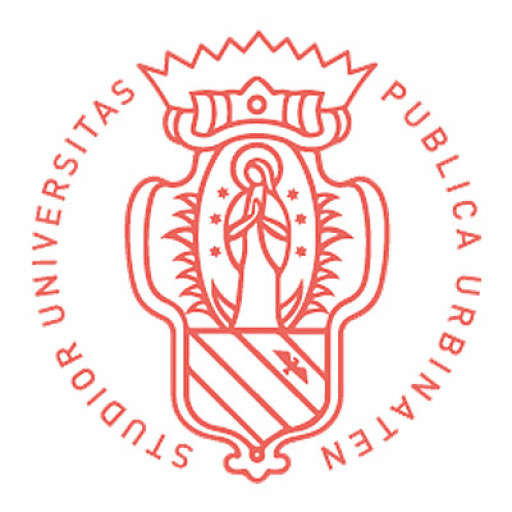Photos of university / #dukeuniversity
Philosophy at Duke University offers students a rigorous and comprehensive exploration of fundamental questions about existence, knowledge, ethics, reason, and the nature of reality. The program emphasizes critical thinking, analytical skills, and the development of clear, persuasive writing. Students engage with a wide range of philosophical traditions and ideas, from ancient to contemporary thinkers, through coursework, seminars, and independent research. The curriculum includes courses in logic, metaphysics, epistemology, ethics, philosophy of mind, philosophy of language, and political philosophy, providing a well-rounded education in both historical and contemporary philosophical debates. In addition to coursework, students have opportunities to participate in undergraduate research projects, attend lectures by visiting scholars, and present their work at conferences. The program encourages the development of skills applicable beyond philosophy, including precise reasoning, problem-solving, and effective communication, preparing students for diverse career paths such as law, public policy, academia, journalism, and business. Faculty members are distinguished scholars committed to engaging students in active learning and personalized mentorship. The degree can be pursued as a major or minor, offering flexibility for students interested in integrating philosophy with other disciplines. Throughout the program, students are supported in developing their philosophical writing and analysis skills, culminating in a senior thesis or project that reflects their cumulative learning. By the end of their studies, graduates are equipped with a deep understanding of core philosophical issues and the ability to think critically and ethically about complex questions facing society today.
(1) A minimum of thirty (30) credit units
You must register for and complete a minimum of 30 credit units.
(a). This must include a minimum of 27 graded credits:
Graduate courses are level 500 or above. Up to 6 graded credits can be advanced undergraduate course credits of Level 200-499. Students usually also complete a graduate research credit in preparation for their final examination.
(b). There is a 12 credit per term cap on enrollment to promote successful completion. Nine (9) credit hours is considered full time.
(2) A minimum of three semesters of continuous enrollment** and payment at the flat-rate tuition and fees set annually by The Graduate School
Note: Summer Term I and II combined are equivalent to one semester.
**After three semesters of full-time study and enrollment or that equivalent, the student's approved academic load will be changed to part-time status, and tuition charges will be set at the costs noted under the Cost of Attendance.
(3) Either a final Thesis (usually 40-60 pages) with a Master's Exam (60-90 minutes), OR a Non-thesis Master's Exam (using two (2) substantial course papers) successfully defended with an Examining Committee of three graduate faculty (at least two must be Full graduate faculty).
- Transcripts
- Letters of recommendation
- Statement of purpose
- Resume
- GRE scores
- English language proficiency test scores (if English is not your first language)
- GPA
- The application fee is $85
Funding options for humanities programs at Duke University include a variety of financial aid opportunities designed to support eligible students throughout their studies. Undergraduate students can apply for need-based financial aid by submitting the Free Application for Federal Student Aid (FAFSA) and the CSS Profile, which Duke uses to assess financial need and determine aid packages. These packages may include grants, scholarships, work-study opportunities, and loans, with the aim of minimizing debt and making education accessible to all qualified students. The university also offers merit-based scholarships based on academic achievement, leadership, and extracurricular involvement, which do not require repayment. Graduate students in humanities disciplines can explore fellowships, research assistantships, and teaching assistantships that provide stipends and tuition remission, enabling them to focus on their academic work while earning funds to support their studies. Duke's Office of Financial Aid and the Graduate School provide comprehensive information about available funding opportunities, application procedures, and deadlines. Additionally, external funding sources such as private foundations, government grants, and national scholarship programs can be pursued by qualified students to supplement university awards. The university encourages students to seek multiple sources of funding and provides counseling and resources to assist in the application process. Overall, Duke University is committed to supporting its humanities students financially through a combination of internal and external aid programs, ensuring access and affordability for a diverse student body.
The Duke University Humanities program offers a comprehensive and interdisciplinary exploration of human culture, history, philosophy, language, and arts. As a core component of the liberal arts education at Duke, the Humanities department encourages students to develop critical thinking, analytical skills, and a profound understanding of the diverse expressions of human experience across time and cultures. The program encompasses a wide range of courses covering literature, philosophy, history, religion, art, and classical studies, allowing students to tailor their academic paths according to their interests and career goals.
Students enrolled in the Humanities program benefit from Duke’s commitment to fostering a collaborative learning environment, engaging with distinguished faculty members who are leaders in their fields. The curriculum emphasizes both theoretical understanding and practical application, enabling students to participate in research projects, seminars, and cultural events that deepen their appreciation of human achievements and challenges. Additionally, the program often encourages interdisciplinary connections, integrating insights from social sciences and sciences to provide a holistic perspective.
Duke’s location in Durham, North Carolina, enhances the experiential learning aspect of the Humanities studies, with access to local museums, theaters, historical sites, and community organizations. The program also offers opportunities for study abroad, internships, and involvement in various student-led initiatives, which prepare graduates for careers in education, arts and culture, publishing, public service, and beyond. Overall, the Duke University Humanities program aims to cultivate well-rounded individuals who are knowledgeable about human culture and equipped to contribute thoughtfully and creatively to society.










